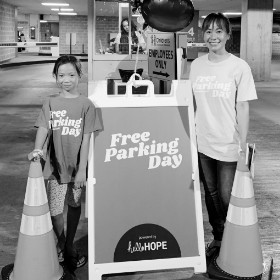How to Prepare for an Outpatient Procedure
The first outpatient procedure we went through with Audra was during the stage of our journey when we were still looking for a diagnosis. We were seeing a pulmonologist that wanted to do a bronchoscopy to see if Audra had food lodged in one of her bronchial tubes. The thought of putting Audra under and entrusting her to the medical staff was terrifying. We had never been through anything like this, and no matter how many questions I asked about what they were planning to do, I still felt like I didn’t know what to expect.
Little did we know that this bronchoscopy would be the first of many similar outpatient procedures for Audra. Endoscopies (a scope of the G.I. tract) are not only the means of diagnosing Eosinophilic Esophagitis (EoE), but they are also the primary means of keeping tabs on how effective different treatment plans are. Audra has had a reprieve from endoscopies lately, but we’ve walked through a number of them.
For us, each subsequent procedure had a different feel. Sometimes we were able to take Audra back with the nurses before the anesthesia was administered, and other times she was taken back by the nurses. Sometimes Audra bounced back pretty quickly, and other times she was groggy and hoarse for the rest of the day. One theme remained — each experience was nerve-racking and scary to walk though. For us and for Audra.
So how do you prepare for an outpatient procedure? The scope and intensity of these procedures can vary quite a bit, but here are a few things that helped us prepare as we gained more experience in this realm.
Practical Preparation: Accept Help and Plan Ahead
Planning ahead can be difficult before an outpatient procedure. There’s a lot to juggle and mentally process. That’s why it can be so helpful to reach out to a family member or friend and ask for help on the day of the procedure.
From cooking meals in advance to driving to and from the medical office to laundry, there are people in your life that would be happy to help. All you need to do is ask.
If you’re unsure of what to ask for or what to tell someone when they offer to help, you can send them this resource on how to help a family facing medical challenges.
Emotional Preparation: Ask for Support
Emotional support is so important when you are going through scary and stressful situations. I’m not a particularly emotional guy, but watching Audra being taken back for anesthesia would make my emotions well up every time.
The emotions I felt were generally a mix of fear, anger, sadness, worry, hope, and thankfulness. One of the ways I was able to manage and process these emotions was through the support network that we had around us.
It isn’t a sign of weakness to be honest about how you’re feeling and ask for family, friends, and coworkers to support you. It’s a mark of courage and strength.
With each procedure, I was able to focus more on thankfulness than on the fear and anxiety of the circumstance. Knowing that Mary Beth and I were in this battle together — no matter what — was a strength for which I was thankful beyond words. Having a team of people that knew what we were going through and were lifting us up in prayer was an encouragement for which I was thankful. Having a team of incredible nurses and doctors that were caring for Audra was a comfort for which I was thankful. Ask for support, and remember, you aren’t alone.
Physical Preparation: Take Care of Yourself
Taking care of yourself physically can be challenging when your family is going through medical adversity. Often times, lack of sleep, unexpected events, different food, and irregular schedules can take their toll on your body.
With that said, getting rest leading up to a procedure helped me be a better husband and dad in those times. I knew I needed to be strong for my family and serve my family during these critical times. While I’m far from perfect in that arena, I know that sleep is instrumental in helping keep my attitude and patience in check.
From sleep to healthy eating to exercise, being in a good physical state can help you process the stress and emotion of the procedure well.
Spiritual Preparation: Be Honest and Lean on Hope
Each outpatient procedure that we’ve been through felt like a spiritual battle. Beyond the emotions, I had to wrestle with what I believed about God’s goodness, healing, and pain. As we have walked through the endoscopies, the first thing I needed to do was level with God about how I was feeling and what I was thinking.
Do you feel like you can be honest with God? If you’re unsure of how God will respond, take a read through the Psalms in the Bible where David poured out his heart to God. And how did God respond? With grace and love.
The more I’m honest with God, the more I’m able to open my heart to the truth of what He says in the Bible. In the end, God’s unchanging character and incredible promises give me hope to lean on through the stress of the procedure.
"God is our refuge and strength, an ever-present help in trouble."
Psalm 46:1
If you are looking for spiritual truths to stand on, you may be interested in our guide for what to pray while your child is in surgery.













